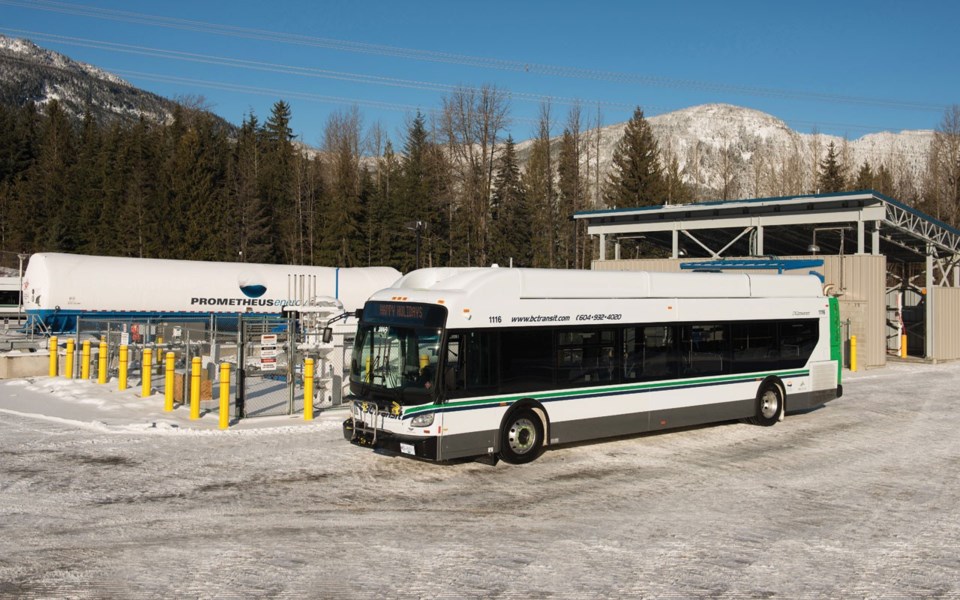Whistler's transit fleet is getting greener as 25 new Compressed Natural Gas (CNG) buses are now being worked into rotation.
The buses were officially unveiled at a press conference on Dec. 20 at the Whistler Transit Facility.
Nine have already been delivered, with more on the way this week and a final delivery in the first week of January, said BC Transit president and CEO Manuel Achadinha.
Whistler should be operating with a full CNG fleet by the third week of January.
Whistler joins Nanaimo and Kamloops (2014 and 2015, respectively) as one of the first communities in the province to have a CNG fleet.
In total, there are now 95 CNG buses in operation in B.C., with more to come down the road.
"Given just the whole philosophy of Whistler as a community, being a clean, green community, (CNG) fits in really well," Achadinha said.
"The other thing from a customer's point of view that I think they're going to notice, because we've seen this in both Nanaimo and Kamloops, is how quiet the bus is. From a customer's point of view, it's the No. 1 comment we get back."
Taxpayers will also see a benefit with CNG, as the fuel costs less and is more predictable for budgeting purposes, Achadinha said.
"For example, in Nanaimo, they've saved about two per cent on their operating cost per hour, which works out to about $250,000 a year in savings," he said.
That figure could be comparable to Whistler, as Nanaimo also has a fleet of 25 buses.
"And because the cost of fuel has been increasing in the past year, (the savings for Whistler) are going to be greater than $250,000," Achadinha said.
Working the new buses into Whistler's fleet required a new CNG fuelling and compressor station, installed this year at a cost of $3.2 million ($1.6 million from the federal government, $1.1 million from the province and $500,000 from the Resort Municipality of Whistler).
The buses themselves came with a price tag of $17 million, paid for using a similar cost-share formula (50-per-cent paid by the federal government, 33 per cent by the province and 17 per cent by the RMOW).
FortisBC, which will supply the natural gas, will also provide $539,500 to help offset initial costs.
The project is part of $160 million in federal and provincial funding for BC Transit projects.
"Transit is a key priority for our community and across the province, and it is initiatives like CNG buses that continue to move us toward improved transit service and reductions in greenhouse gas emissions," Mayor Nancy Wilhelm-Morden said in a release.
The new CNG buses follow a high-profile pilot project that added 20 hydrogen fuel cell buses to Whister's fleet. The $90-million fleet was first rolled out in 2009 as a way to showcase the zero-emission technology and the so-called "hydrogen highway" stretching from San Diego to Whistler in time for the 2010 Winter Olympics. But, facing escalating maintenance and fuel costs, BC Transit pulled the plug on the world's largest hydrogen bus fleet in late 2013.
Next up for transit riders in Whistler is the rollout of real-time vehicle tracking, slated for installation in the second half of 2018.




